Which World Cup winning team overcame the toughest challenge?

Every World Cup winning team deserves its place in rugby’s pantheon. These nine squads, captained by eight men, representing just four nations, are totems of excellence. They are the grand masters of their sport. But they are not necessarily equals.
To put it another way, not every title run is the same. If one of Ireland, France, New Zealand, South Africa or Scotland lift the Webb Ellis Cup in Paris later this year, they’d have accomplished the greatest challenge this game has ever presented. Their side of the draw resembles Mordor while the other half, one containing England, Wales, Australia, Argentina and Japan, is The Shire by comparison.
With that in mind, and at the risk of angering fans around the world, I’ve ranked each World Cup winner according the hardships they faced in the tournament according to a simple scoring system, awarding one point for each of the following:
- If the World Cup was away from home.
- If the World Cup was outside of region (eg. European team in the southern hemisphere)
- If the team beat the previous champions.
- If the team beat best ranked team (author’s discretion)
- If the team beat hosts
- If the team beat reigning Five/Six Nations champions
- If the team beat Tri Nations/Rugby Championship champions
- If the team emerged from group of death (ie, three quality teams)
- For any victory over a tier one team (competing in that year’s continental competitions)
New Zealand 1987 – 4*
Admittedly, the very first champions would always lose out on some of the above points on offer, but the All Blacks’ march to victory was hardly Hannibal crossing the Alps.
They whipped Italy, Fiji and Argentina in the group stage, scoring 30 tries along the way, and then made mincemeat of Scotland, Wales and France in the knockout rounds.
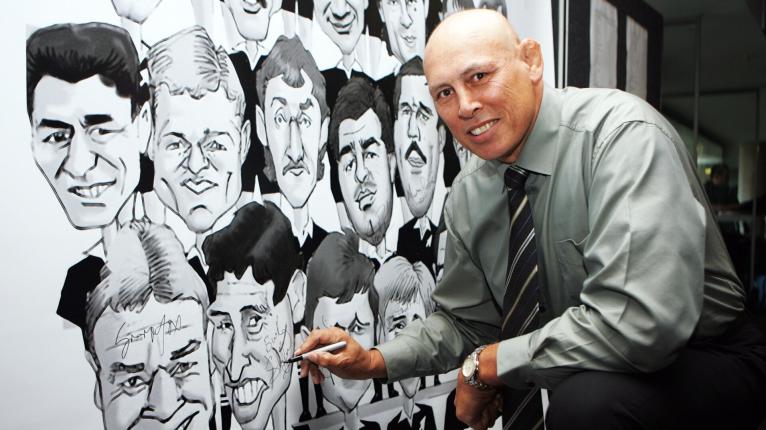
David Kirk’s team pick up three points for these wins, another for getting the better of the reigning Five Nations winners in the final, but that showpiece game was the first real test for what was clearly the best side in the competition.
*Admittedly, this tally needs a caveat given the parameters of the scoring system.
Australia 1991 – 9
The Wallabies under Nick Farr-Jones might not rank alongside future iterations in terms of greatness on the field, but there can be no denying the arduous slog they had to endure to lift Australia’s maiden World Cup.
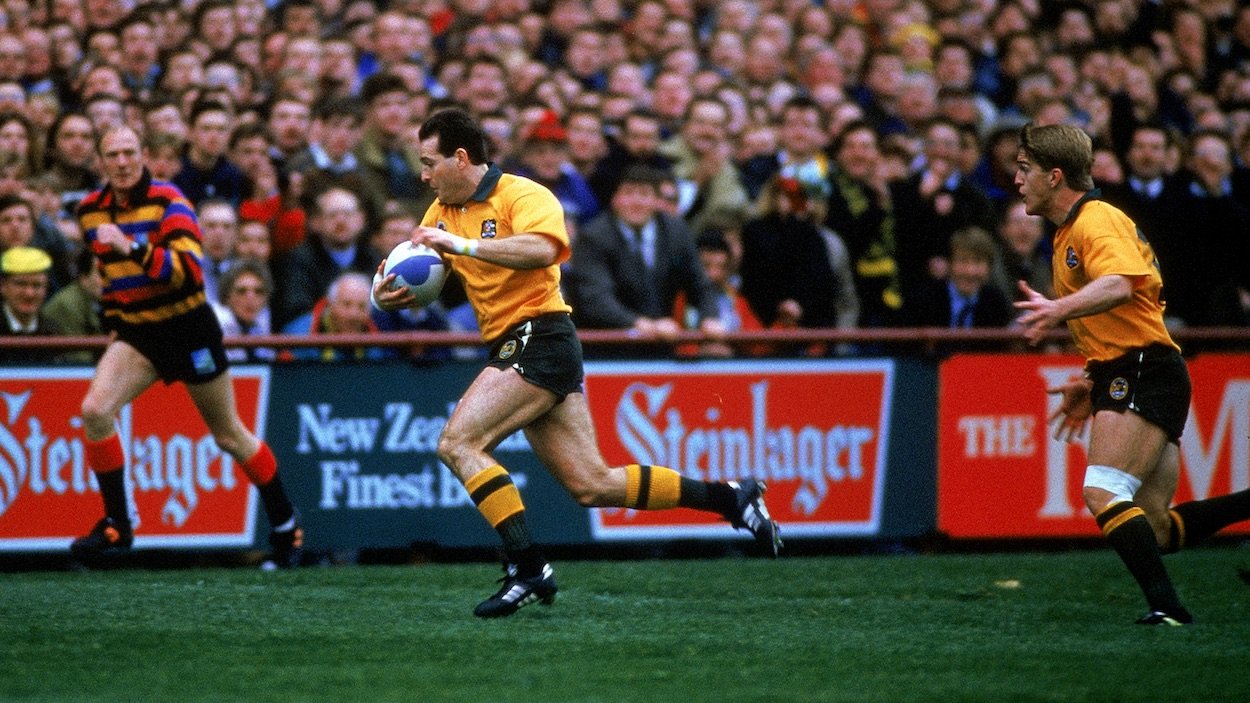
They beat Wales in the group stage before edging Ireland by a point in the quarterfinals. Next they beat the reigning champs and favourites, New Zealand, in the semi-finals, and proceeded to get the better of the Five Nations holders, England, in the final.
David Campese finished as the tournament’s top-try scorer and southern hemisphere rugby had officially underlined its status as the game’s epicentre of excellence.
South Africa 1995 – 5
There’s a reason the Springboks’ win just a year after the country’s first democratic elections is the only rugby story to get the Hollywood treatment. It defied belief and was a living example of what is possible when a nation’s divided people can come together for a single purpose.
Too bad it doesn’t score highly here. Francois Pienaar’s men lose out on points as their tournament was contested on home soil. They were also fortunate in that they played Western Samoa in the quarterfinals, rather than an established tier one nation.
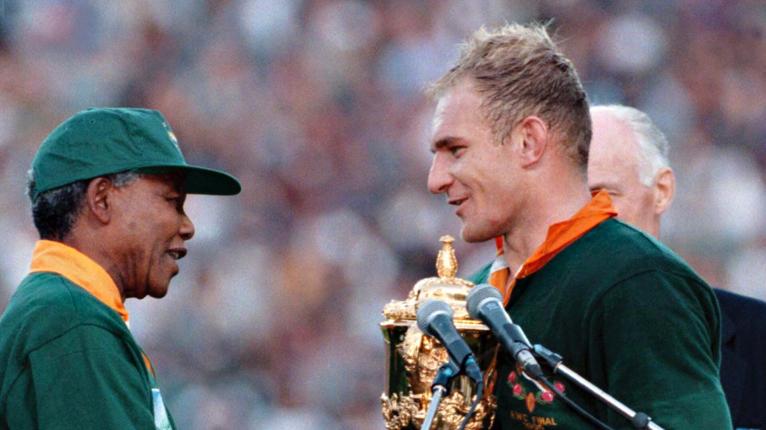
But that was a consequence of beating the reigning champions Australia in the opening game in Cape Town. They pick up another point for edging France in a thriller in Durban and then the mighty All Blacks, unquestionably the tournament favourites.
Australia 1999 – 9
Another Australian victory across the world earns them four points and they collect another two for squeezing past the previous winners, South Africa, in the semi-finals thanks in large part to Stephen Larkham’s first ever drop goal.
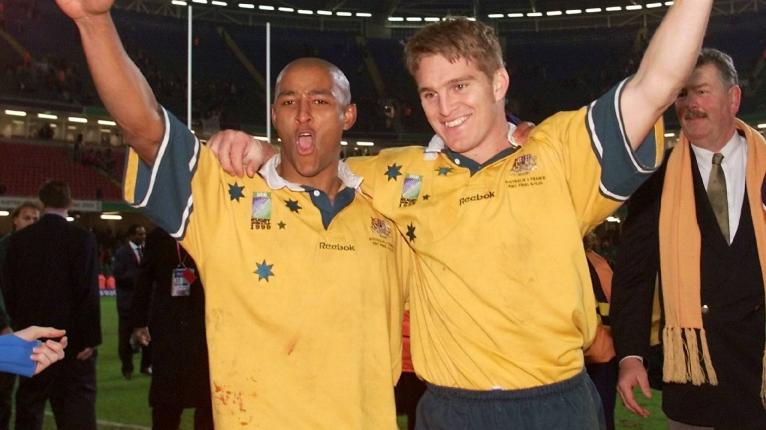
Avoiding pre-tournament favourites New Zealand helped, but this was no simple stroll to the final. They beat three tier one teams along the way, including Ireland in Dublin, Wales in Cardiff and the reigning champions, South Africa, before they met France at the end of the road.
Once they got there, they took advantage of a knackered French team that had emptied the tank against the All Blacks the week before. Australia scored two tries and Matt Burke kicked 27 points in a one-sided affair.
England 2003 – 8
Martin Johnson’s side arrived in Australia as the supreme team on the planet, which served them well but isn’t helpful here. They’d already claimed a Six Nations grand slam and boasted several players who were the leading figures in their respective positions.
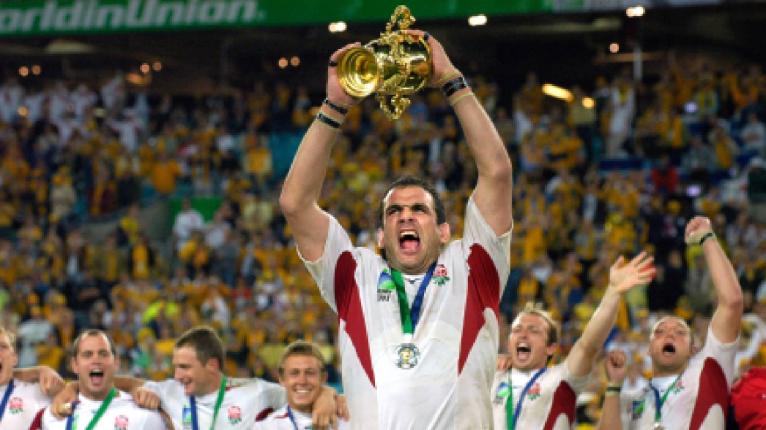
They made light work of South Africa in the group stage and then steamrolled Wales and France in the knockouts. Facing the hosts in the final would prove no easy task, especially as the Wallabies had just vanquished the All Blacks by 12 points in Sydney.
It was a tight affair which was settled by the second most famous drop goal in rugby history. Eight points on this chart is a decent haul, but it’s not good enough for a win. No doubt Jonny Wilkinson is fuming.
South Africa 2007 – 6
Like England in 2003, the Springboks of 2007 had a claim to being the most complete outfit around. 2009 was the team’s zenith, but an indomitable tight five, a dynamic back row, pace out wide, the world’s best scrum half in Fourie du Preez and Jake White’s simple game plan meant they had the tools to beat anyone on their day.
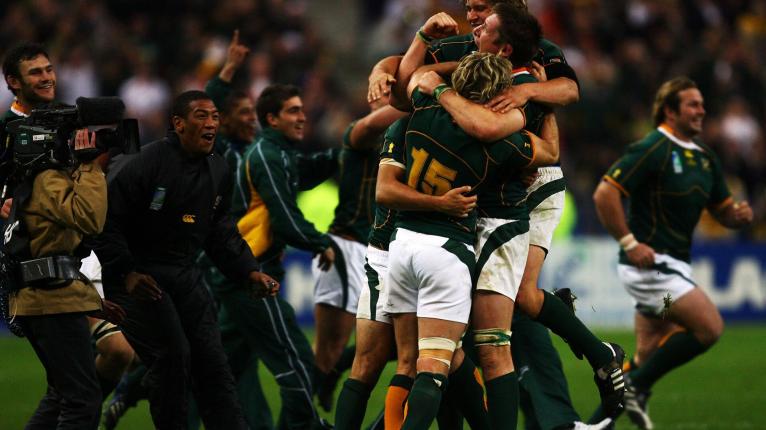
It’s a shame they weren’t better tested. Two wins over England – 36-0 win to start and then 15-6 in the final – hands them four points for beating the previous champions, but that’s as challenging as it got for the Boks as they avoided any other Six Nations or Tri-Nations team (Argentina, who were beaten 37-13 in the semi-final, hadn’t been included yet).
The Springboks would prove their pedigree two years later when they won both the Tri-Nations and a British & Irish Lions series. But at this World Cup in France, they hardly had to leave second gear.
New Zealand 2011 – 4
The All Blacks were on home soil. The All Blacks were the number one ranked team on World Rugby’s metrics. And though the All Blacks were beaten by Australia in the year’s Tri-Nations, the All Blacks were expected to finally end their World Cup drought.
So they did, but they made it far more difficult than it should have been, especially in the final where they almost bottled it (again) against France, clinching a one point win.
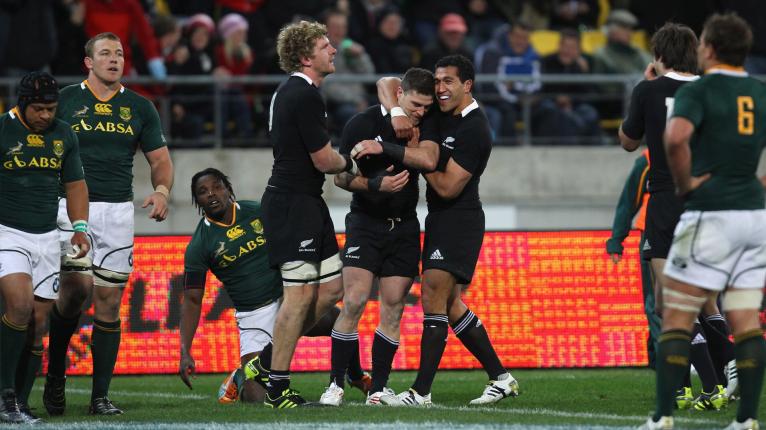
They first emerged from a treacherous group which included France and a spirited Tonga, but this was not the tournament’s group of death. They were blessed with a favourable draw in the quarterfinals against Argentina before seeing off Australia in the semis and then France in a nail-biter at Eden Park
New Zealand 2015 – 7
By now the All Blacks were firmly established as the greatest rugby team that had ever existed. They were in the midst of a 509-week stretch as World Rugby’s top-ranked side and could still call on the services of a large chunk of the squad that won the title four years before.
That’s not to say their victory was guaranteed as they’d need to travel across the world to England to reclaim their crown. They cut their teeth with group stage wins over Georgia and Argentina, now part of the Rugby Championship, before thrashing France in the next round.
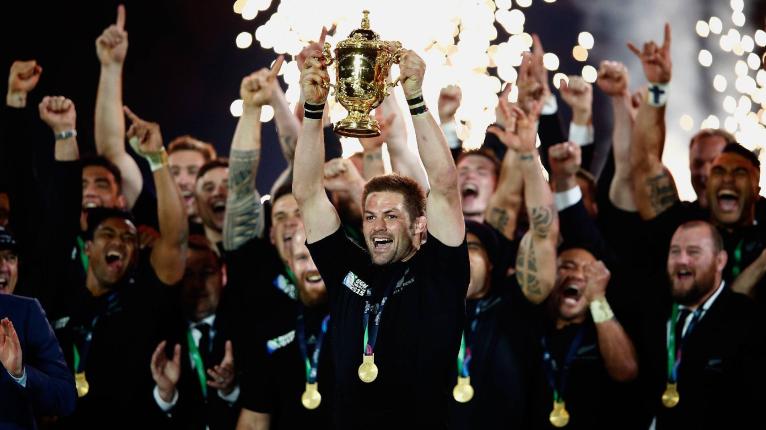
A gruelling two point win over the Springboks in the semi-finals was the ideal tune-up for the main event against the Rugby Championship holders, Australia. It was there in Twickenham that Dan Carter, Richie McCaw, Ma’a Nonu and the rest cemented their legendary status as the first team to claim back to back World Cups with a comprehensive win.
South Africa 2019 – 8
That South Africa were even contenders at the World Cup four years ago was a testament to the work done by Rassie Erasmus and his deputy, Jacques Nienaber, who inherited a disjointed team and turned them into champions.
They arrived in Japan with the Rugby Championship locked away in the cabinet but were reminded of the challenge they’d face when they lost their tournament opener to New Zealand. If they were to leave Asia with more silverware, they’d have to become the first team to drop points en route to the final.
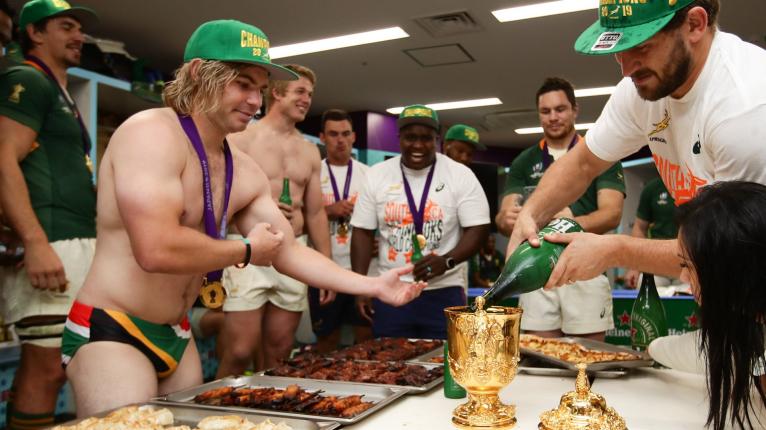
Japan’s heroics in the group of death resulted in a relatively kind draw for the Boks who still had to perform to beat the hosts in the quarters. A scrappy win over the Six Nations champions, Wales, set them up for a final against England, who had just produced one of the most complete rugby performances in living memory, beating the All Blacks 19-7. Some pundits and former players were already etching England’s name on the trophy.
Instead it was Siya Kolisi who hoisted the golden trophy as his pack obliterated the English and Cheslin Kolbe turned Owen Farrell into a Ferris wheel.
Final standings:
| Team – Year | Points |
| Australia – 1991 | 9 |
| Australia – 1999 | 9 |
| England – 2003 | 8 |
| South Africa – 2019 | 8 |
| New Zealand – 2015 | 7 |
| South Africa – 2007 | 6 |
| South Africa – 1995 | 5 |
| New Zealand – 1987 | 4* |
| New Zealand – 2011 | 4 |














I was in Brisbane for England's 2003 1/4 v Wales. I don't think anyone would say they steamrollered Wales. England were rocking, Jason Robinson's break for Greenwood's try and bringing on Mike Catt saved them
It would be interesting to work out a scoring system for the most successful team at the RWC. Points could be allotted for win/loss ratio semi final and final success ratio etc. If that is taken into account South Africa are the only team to to have won the cup who have never lost a final. England, Australia and New Zealand have all lost finals.
1995 will always be a 10/10. Those men are living legends in SA, There's a good reason it's a movie too. Joost played the final with broken ribs, Andre Joubert with a broken hand in a specially made glove. The coach had terminal cancer at the time. Kitch Christie. It was his first time as Springbok Coach and he would be the only Springboak coach to go undefeated. Those boys showed blood and guts to beat probably the best All Black team of all time. I'll never forget Joost tackling Johan Lomu at full pace front on. Basically putting his body on the line for his country. That day they were willing to die for that victory. 1987 All Blacks got whipped really badly a year earlier when they came over to SA as the Cavaliers. Took record defeats 3-0. so 1987* champions. The 1991 Wallabies granted they were good, but who knows.
This is a ridiculously flawed methodology. For example beating the hosts is a different matter when the hosts are a tier 1 nation compared to beating Japan. To get a true picture you’d need to rank each team and give points for wins based on the rank of the opponent. Pool play is almost irrelevant, it’s only the three knockouts that count. In this respect NZ in 2015 would probably top the list having to beat France, SA and Australia, all ranked in the top five, while SA in 2007 and 2019 would be at the bottom beating Fiji, Argentina and England, all outside the top five; and Japan, Wales and England, only one of which is top 5.